8 Years as a Millennial in Berlin
8 years ago I moved to Berlin. This is timely as I was also born in 1989, the year of the fall of the Berlin wall. Little did I know how moving here would change my life and shape my thinking. I came naively chasing love and seeking adventure. I was barely 22 and keen to try living in a different environment. I had moved to Israel at 18 and after a gap year of travels and a rocky service in the Navy, I was ready for some more thrills and challenges. Back then, I was in search of the ultimate living place. I had no clue what it exactly entails. But I was walking around under the illusion that it exists and it's just a matter of finding it. The more places I lived in, the clearer it became that while no such place exists, I could still make a place for me in this world. Germany, despite carrying all the negative reputation became that place.
Europe has always been a place of interest to me. My first visit was a family camping trip to Germany, Switzerland, and Italy while I was in primary school. That holiday planted a seed that would years later sprout. There were many elements to that feeling. It was impeccable attention to detail. A romantic sense of beauty–something that a hike in the Swiss alps will evoke. A radiating sense of well-being. Harmony between tradition and modernity, the summer lushness and dense forests which characterise European summers. My father–who's a historian–made a point that the trip is like a journey through time. When we visited the Gutenberg Museum –one of the oldest museums of printing in the world–I could barely comprehend the significance of the print press that my father saw. With glistening eyes and slight confusion I observed the fascination with yet "another" copy of the bible. Years later, as social media pervaded my private and public life the epiphany hit me. The freedom to to explore and spread ideas is paramount to my life.
Later in high school, while growing up in Australia, I got exposed to the happy-go-lucky approach to life of Aussies. Australian culture is centred around sports, beer, humour, flat-whites, and the beach. It's a very lifestyle oriented culture. That's maybe reductionist but it's how I experienced the spirit of Australia. This spirit went uninterrupted as Australia's economy continued to grow. By 2017, Australia took the record for the longest run of uninterrupted GDP growth in the developed world, marking 26 years with no recession. This has created a thriving middle class and a feeling everybody's getting their bit of the growing cake. Living in an idyllic place is nice, but I left Australia when I was 18 and I was excited to leave the bubble. Australia is so remote and it takes a minimum of 6 hours by plane to get somewhere culturally different. Social media, which was still in its infancy at the time, had yet to take full effect in dissolving the perceived geographical barriers.

Moving to a new country is like a roller coaster ride with many highs and lows. You have to adapt to new social norms–many of which are implicit. You have to learn a language, a laborious and long undertaking of its own. You have to build a social circle and integrate into or build a community, find worthy employment and deal with plenty of bureaucracy.
Bureaucracy can be tricky in Germany. Everyone has to deal with it, yet few enjoy it. The Ausländerbehörde (immigration office) is known for having long waiting times for appointments and long queues on open days. If you come prepared with all the necessary documents and you speak German or have a German speaker with you, you're generally fine. But there are numerous cases reported of the people queuing outside from before sunrise and still not getting an appointment. It's mostly about what you feel as you enter in that office. It's like there's no understanding of the impact of the quality of service in such a place. There's so much talk in Germany about Willkommenskultur, yet very little of that is felt in the front lines like the Ausländerbehörde.
I also had to examine my own behaviour and find a balance between assimilation and multicultural co-existence; something I'm still fine-tuning. Berlin has had a long history of being an oasis for misfits, from the hedonism of the 20s to the time of the Berlin wall, during which West Berlin would attract hippies looking to avoid compulsory military service. You don't have to blend in. Everyone here is a little bit weird and the city's dwellers don't seem to care about much. That is until you cross a line and get struck with reprimands. The correcting/educating culture is what enables social cohesion in Germany. This is different from other developed countries in my experience. And it's very noticeable. I'll never forget the frown I once got from a mother for jaywalking.
Germany is a country that mixes individualism and collectivism in very interesting ways. As a social market economy, it combines free-market capitalism with a welfare state. It is the fourth-largest economy in the world (going by nominal GDP) powered by the services and advanced industry sectors. It promotes ideals of individual freedom and it feels safe. I've barely had any interactions with the police, and the ones I did were very friendly.
Berlin spricht für sich (Berlin speaks for itself) - The zeitgeist through the lens of street art
Change in Berlin is present in every aspect of life. There are major demographic and cultural shifts taking place. One in every four German residents has migration background. By 2040 one in three people in Germany will have a migrant background. The change in Germany is characterised by lower fertility rates (demographic shift) in a growingly multicultural society.
The former East part of Germany has an aging population, mostly due to many leaving the East for the west after the reunification in 1991. Additionally, foreigners prefer to immigrate to the west due to more opportunities and existing diasporas. For example, a Japanese immigrant will likely want to live somewhere with an existing Japanese community. This means the change in the social fabric is different depending on the location and with it a different sentiment towards the change.
Germans have always found it difficult to develop a healthy sense of love for one's country (this need not be patriotism or nationalism). That's because there's no consensus about what brings everyone living here together. The Reichstag is inscribed with "Dem deutschen Volke", which translates to "dedicated to the German people". This is highly controversial due to the disagreement about the term "German people". An open-ended question that is being constantly challenged by a changing reality. The idea of a German people (folk) has been mostly abandoned due to its association with Nazi propaganda. It also just sounds cringy. This resulted in the distancing of the left from associating with the inscription. For instance, activists replaced the inscription with "Der deutschen Wirtschaft" which means "to the German economy" as protest against lobbying, vested interest, and capitalism.
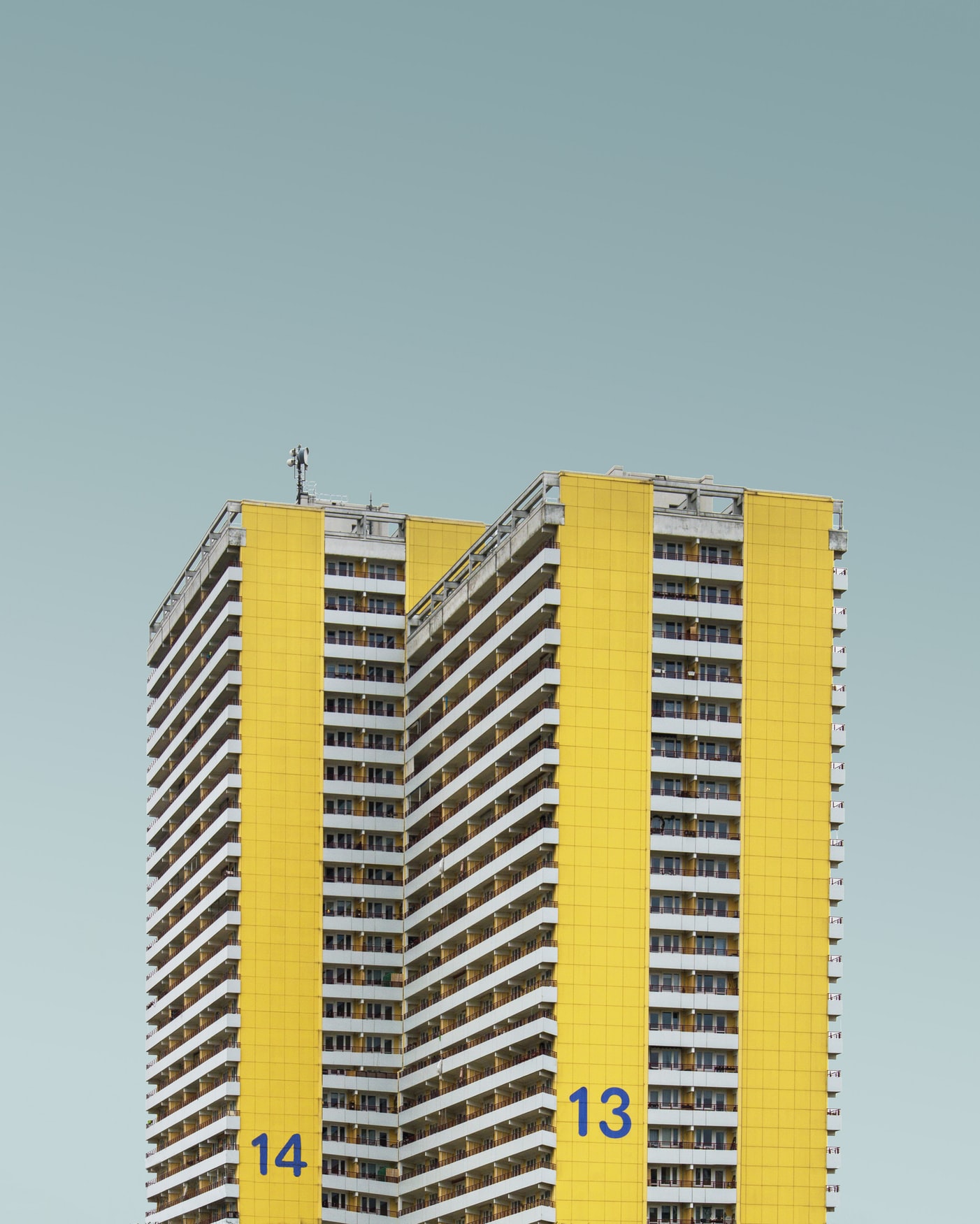
The concrete jungle of the former east
Nevertheless, there are still many cultural clashes and plain ignorance. I've had the anti-Semitic remarks thrown at me a couple of times. I've also been told off by someone while speaking English on the street: "das ist mein Land" (this is my country), I answered gleefully in German "Ist auch meins" which means "It's also mine". At times, I'm reluctant to confess my Israeli nationality–this speaks for the politicisation of public life. I've just had enough interactions go awry. It's as if being born in a country that has a painful and complex conflict makes me the point of contact for every injustice. These are individual cases; most of the people I meet are nice and genuinely curious about my cultural background.
There's seems to be a taboo around passing judgement on anything that is tied to group identity. Berlin is so cosmopolitan and individualistic which ambiguates the boundaries of what may be called German culture. This begs the question: what is German culture? It's not a monolith and there's no single authority. There are many different streams of thought, and it's noticeable in culture, politics, and art.
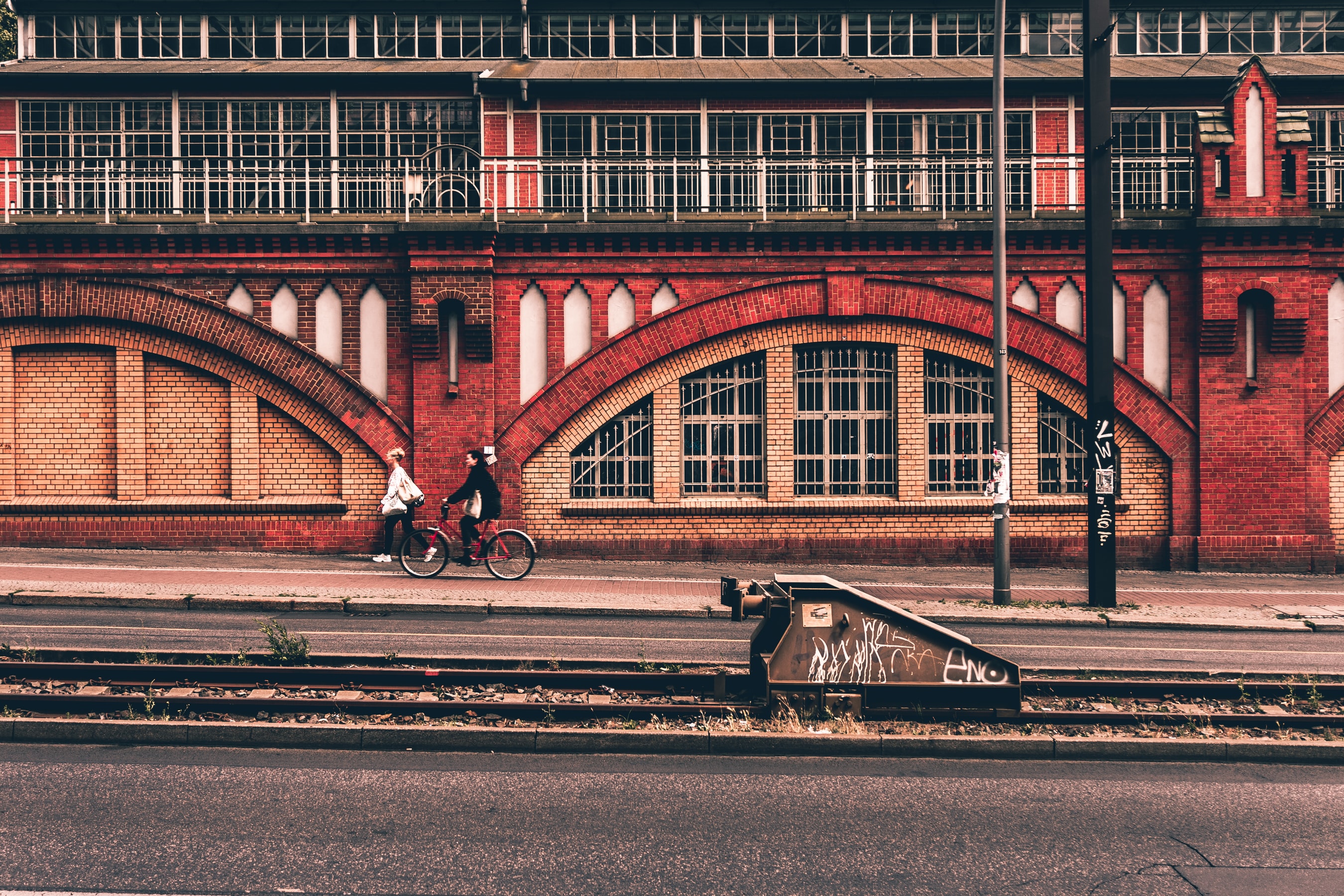
Life in Berlin is also wonderful. Free time is cherished here. It's a lovely place to embrace a slower pace of life. Shops are closed on Sundays, so it's like a collective consumption-free quiet rest day. There's environmental awareness and the city is a cycling-friendly. Berlin is filled with many parks provising a retreat from the barely hectic city life. Ultimately, one just feels free here. You have meet-ups for every possible hobby or interest you might have. The growing international community means access to cultural events and diverse restaurants.
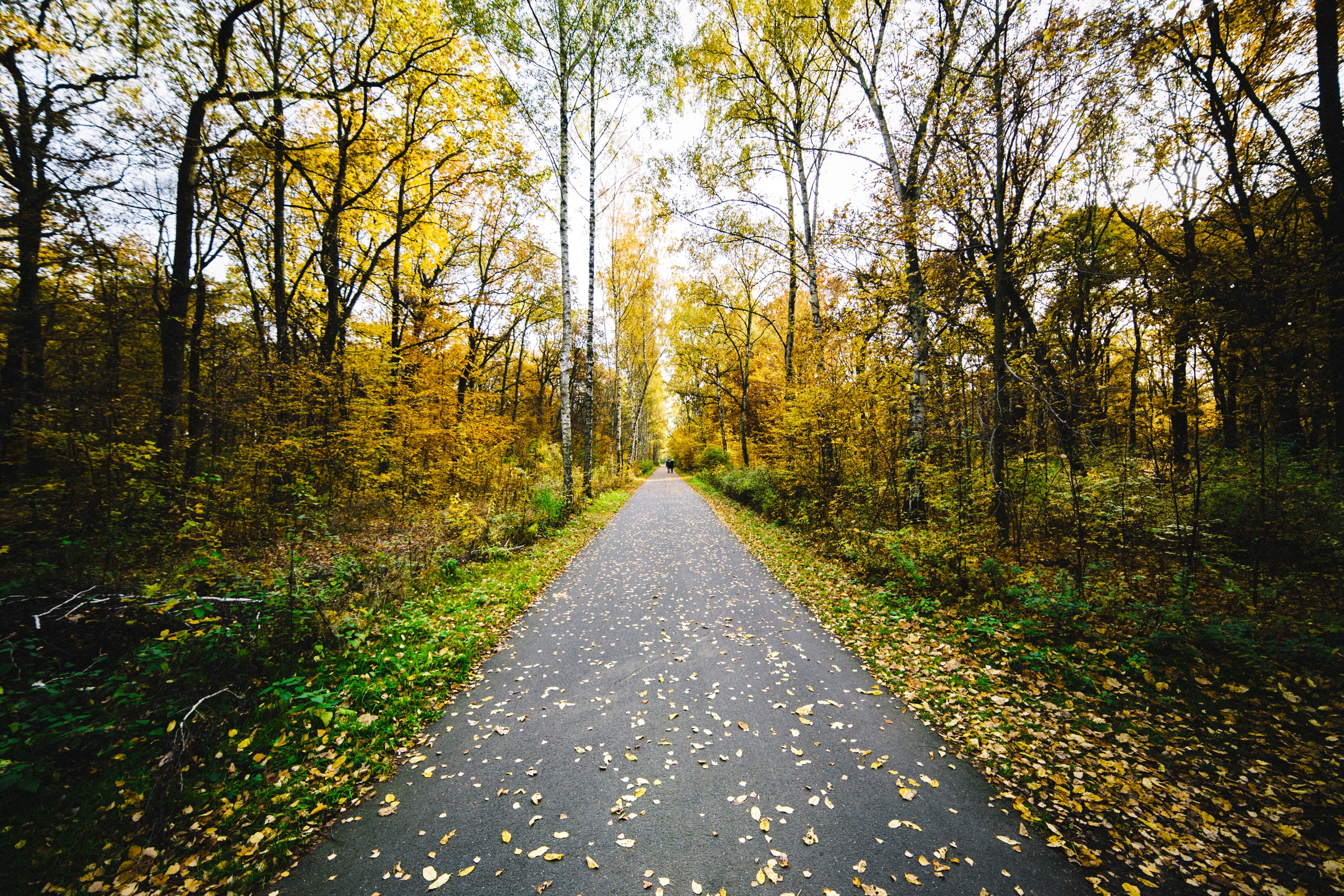
Work-life ties together that spirit. As an employee one is entitled to a minimum of 24 days of annual leave. Employees are generally not expected to work beyond work hours. "schönen Feierabend", a German greeting for "enjoy your free time after work" is another artifact of local philosophy–you're not your work. It embodies the idea of working to live not living to work.
This is at least representative in the tech industry, NGOs, and the public sector. Alas, there's a Precariat –a term to describe a social class which suffers from a lack of security– and it's not an easy ride for everyone. Many foreigners come here in search of a better life and face scarce opportunities for non-German speakers outside a few selected industries.
Historically, it's been easy to get by on a shoestring in Berlin. But rising rents and insufficient supply of housing has created a lot of new tensions and made it more difficult for newcomers to secure housing. This is evident in apartment viewing queues which stretch up to 50 people lining up. The economic growth that emerged after the fall of the wall and the reunification of Germany created a lot of new economic activity and with it came wealth. But the new wealth doesn't seem to be benefitting everyone equally. This imbalance has fueled an already growing anti-capitalist sentiment something you notice in street art, protests, and local politics.
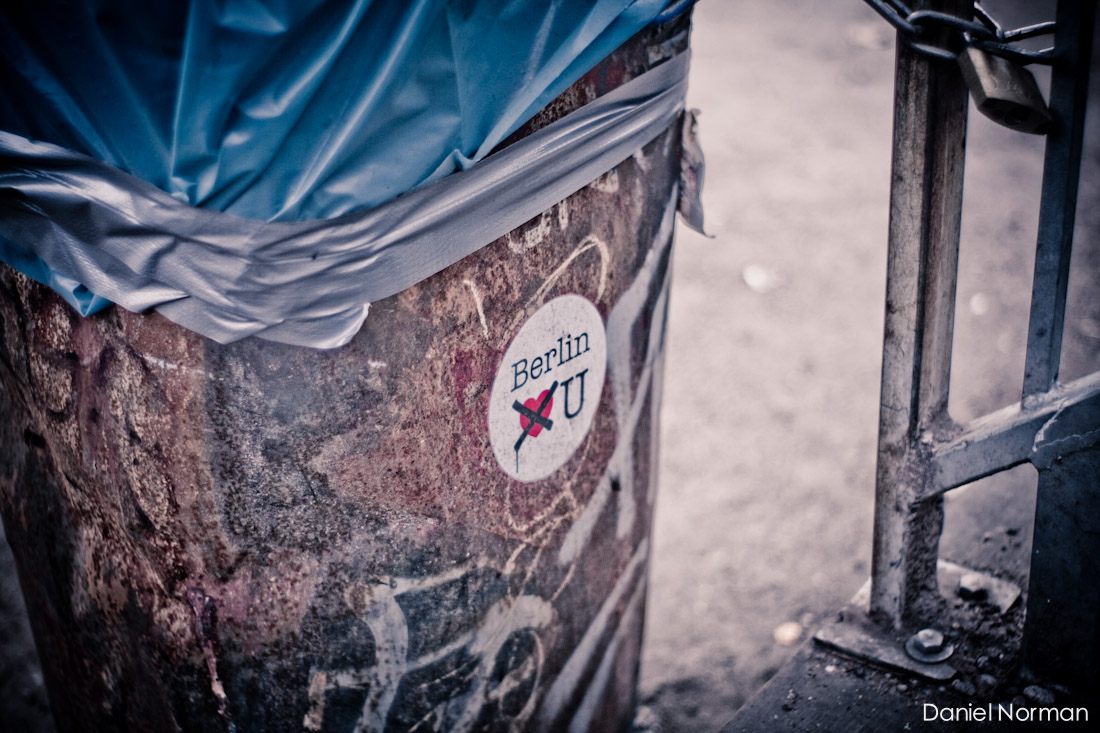
Berlin has mostly been a poor city and these recents shifts put the city in an identity crisis, at the centre of which is the question– what counts as positive growth for Berlin. Should we build more? What if comes at the expense of public spaces? What if the apartments are too expensive for the ones who need them the most? Is the Australian breakfast café part of the gentrification problem? Is a new Google office in Kreuzberg a net bad for a community. The evidence from San Francisco suggests that the worries are warranted.
Post WW2 immigration waves from Turkey, Vietnam, Cameroon, and later from former members of the east block, have not been an easy ride of integration (Fatih Akin, a German director of Turkish descent has some great films that touch on this). The recent refugee crisis has further polarised the discourse around immigration and fueled the growth of the nationalist Alternative for Deutschland party.
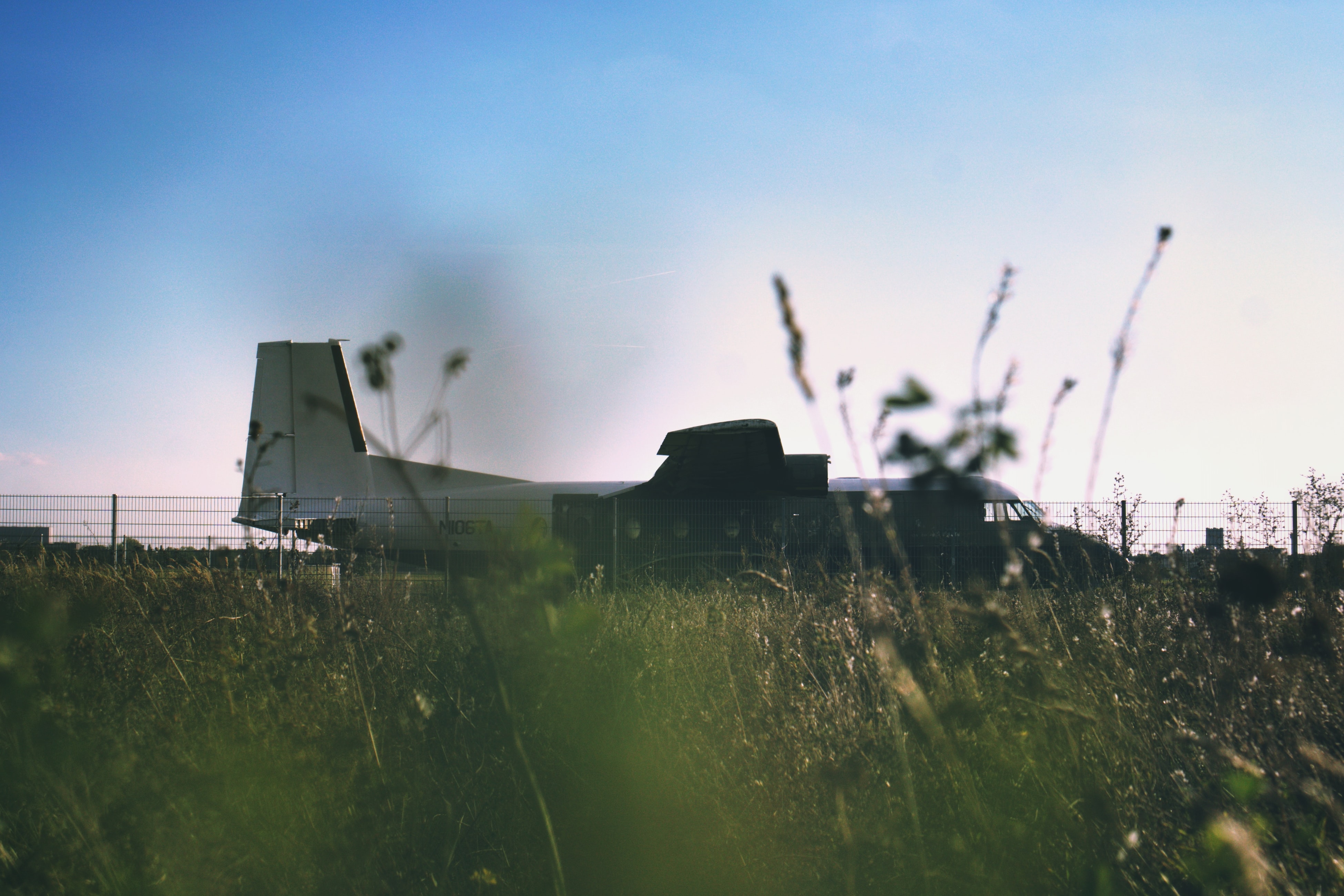
Tempelhof Park - The embodiment of contemporary Berlin.
After 8 years, I've gotten a taste of Berlin.
You're unique.
You're weird.
You're dark and grey winters.
You're summer days that never end.
You're chaos and order simultaneously.
You're a work in progress.
You let me take part in shaping you and then tear me apart when you please.
You're joyous, spontaneous, and wild.
You're sad and bitter.
You're hopeful and cynical.
You're an obnoxious American hipster in Mitte.
You're fixie bikes in Kreuzberg.
You're the alleged "scene" in Wedding.
You never leave your fucking Kiez (hood).
You're a winter that escapes to Asia from which you come back tanned wanting to resolve all your interpersonal conflicts.
You're loud Israelis shopping at Primark.
You're an epic failure when it comes to building airports.
You're Sudanese falafel places on every second street.
You're a sell-out that somehow stays cool.
You're randoms on the street pointing out the obvious: "ohne Helm" as if you don't know you're not wearing a helmet.
You're meditation workshops on a new moon.
You're the sense of community you find in the most unexpected of places (don't worry, I didn't join a cult).
You're those random house parties you end up at when you can barely read the time.
You're Spätis.
You see friends leave and question your anchors.
You're letting new friendships form.
You're having a love-hate relationship with a ramen place.
You're community gardens and amateur beekeeping.
You're alternative everything, sex-positivity, and polyamory.
You're vegan supermarkets.
You're cryptocurrencies, blockchains, and open-source.
You're pretending to take yourself seriously.
You're an endless stream of blips that barely form a narrative.
You're my place.